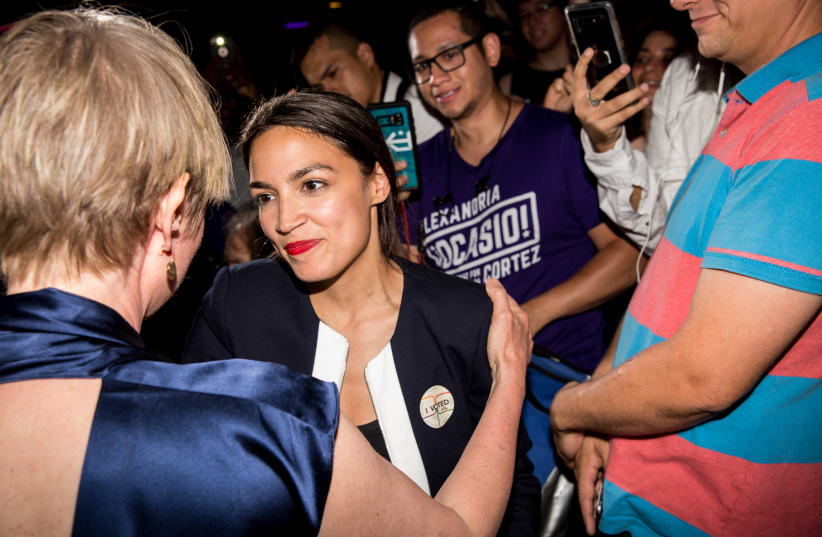In an interview with Glenn Greenwald, a pundit with the Intercept, conducted earlier this month, Ocasio-Cortez explained her position in greater detail. Greenwald opened the discussion referring to "peaceful, unarmed protesters" killed on the Gaza-Israel border in the mid-May protests, although Israel and Hamas both note that 50 of the 62 killed were members of Hamas– categorized by Western governments as a terrorist organization– and were attempting to breach the border."My background is as an educator, an organizer and an activist. And I think I was primarily compelled on moral grounds, because I can only imagine if 60 people were shot and killed in Ferguson, or if 60 people were shot in killed in the West Virginia teacher strikes," Ocasio-Cortez said, referring to civil rights and labor rights protests held in the US in recent years. "The idea that we are not supposed to talk about people dying when they are engaging in political expression just really moved me. And running for office, seeing ,like, the silence around this issue, has been a little interesting to me."Ocasio-Cortez noted that her family is Puerto Rican, a US territory "that is granted no rights or civic representation," she said. "If 60 people were shot in protest of the United States' negligence in FEMA and kind of keeping us on that island, I couldn't even imagine if there was silence on that," she added, referencing the slow federal response to devastation wrought to the island after Hurricane Maria hit last year.The Democratic candidate also noted the diversity of her congressional district, and said that many Jewish and Muslim constituents had thanked her for the stance she took on Twitter. According to the Berman Jewish Data Bank, a project of the Jewish Federations of North America, roughly 29,000 Jewish residents live in the district– or 4% of the district population.."People say in New York City this is political suicide, and so on, but I had a lot of my own constituents thanking me for taking that position," Ocasio-Cortez continued. "I think that in the same lens that I looked at it, people, I think, are separating the actions and the status of the Palestinians from the greater geopolitics of the area. I think people are starting to just look at the humanitarian state of the Palestinian people through a humanitarian lens."Vermont Senator Bernie Sanders, Ocasio-Cortez's former boss, has taken similarly hard lines against the Israeli government. He referred the violence in May, around the Palestinian commemoration of the "disaster" (Nakba) of Israel's birth and the opening of the new US embassy in Jerusalem, as a "tragic overreaction" by the IDF.At the time, Sanders said the solution was a US-led response to the growing humanitarian disaster in the Gaza Strip, currently controlled by Hamas."I don't even see this as a political issue, especially through the frame of that one incident, and especially coming from the background of an activist," Ocasio-Cortez added in her interview with Greenwald. "I just think that we need to talk about these things, and we need to talk about the basic humanitarian rights that should be afforded to all people, including the freedom of political expression."This is a massacre.I hope my peers have the moral courage to call it such.No state or entity is absolved of mass shootings of protesters. There is no justification. Palestinian people deserve basic human dignity, as anyone else.Democrats can’t be silent about this anymore. https://t.co/wJGATOtDsR
— Alexandria Ocasio-Cortez (@Ocasio2018) May 14, 2018
What does surprise NYC primary race winner think about Israel?
"This is a massacre," Ocasio-Cortez wrote on Twitter of the IDF's killing of Palestinians at the Gaza border in May. "Democrats can’t be silent about this anymore."
